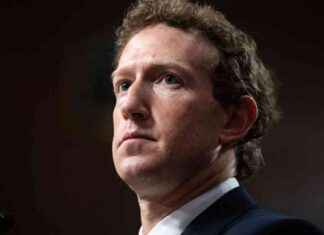Caption
Close
With the U.S. abandoning the Trans-Pacific Partnership, and as China sets its sights to be the uncontested trade superpower in Asia, a new world economic order is clearly in the making. When combined with the rise of nationalism after the elections in Britain, United States and Italy, the suspense is profound.
In all instances, discomfort from globalization, versus predictable swings between left-and-right politics, is the driver.
Most people equate globalization with growing international trade in goods and services, but that is only part of it. In a digitally interconnected world where ideas, money, designs and even know-how can traverse domestic boundaries instantly, it has become the process by which enterprises extract commercial value from innovations in every possible field and direction.
Yet, presently, economic disenchantment among the working and middle classes of the world’s developed economies is real. Convinced that rising global prosperity has not included them, they point to their enduring job losses and to the widening income distribution disparities, or inequality, while emerging nations benefited unevenly over the years.
Although job losses and increasing inequality are outcomes, the reason they exist is not globalization but its careless implementation. But how did trading between nations, an economic practice whose benefits have transcended millennia, go wrong?
Misused and abused free markets economics theory is at the top of the list. What was supposed to be plain trade liberalization after World War II got confused for unconstrained off-shoring by large multinationals, thus displacing large numbers of jobs. This, then, made trade-symmetry between countries — a historic requisite in engendering mutually beneficial exchange — less and less feasible or, perhaps more significantly, less important.
In that pursuit, the relentless chase by multinationals of maximal profits, and the associated need for global cost-competitiveness, often went against regional employment stability.
The idea that the “invisible hand” of free markets would swiftly come to correct trade imbalances proved to be wrong. This not only helped mask grossly underestimated job dislocations in the millions, but also lulled politicians to overlook enormous trade deficits, both harbingers of massive economic disruption.
What is clear now is that capitalism without borders looks fundamentally unsustainable when confronted with the boundaries of democratic nations feeling economically short-changed. But mismanaged international trade, alone, does not explain the severity of the backlash. There is another culprit that must be well understood and carefully avoided: unrestrained global finance.
During the past 30 years, severely underestimating credit-risk when aggressively applied across national boundaries, western banks went overboard. When the allure of worldwide lending ended in the fiasco of the Great Recession of 2008, rich countries painfully learned that excessive debt scattered across continents can be a lot worse than trade deficits.
So, where are we now, after having tried since 2008 repressively low interest rates and hoping for a recovery? Still learning, hopefully, that monetary policy, to be effective, needs to be assisted with complementary policies some of which are economic in nature (e.g. fiscal and trade) and some of which are directly related to the generation of wealth, such as policies encouraging the attainment of new and productive frontiers with science and technology.
Looking ahead for America, even after assuming reduced dependencies for oil imports and improved trading reciprocity with China, normalization will take time to attain. This is now a world where the competitive advantage of nations is changing and where human knowledge and skills — not money or commodities — will become the most valuable of all asset classes.
In coping with the fears of globalization, and in the pursuit of more inclusive national prosperity, few things appear as consequential as comparative superiority for higher education and professional training: the foundation for competitive human capital.
Moris Simson is a fellow of IC2 Institute at the University of Texas at Austin and a member of the American College of Corporate Directors.
Our editors found this article on this site using Google and regenerated it for our readers.





